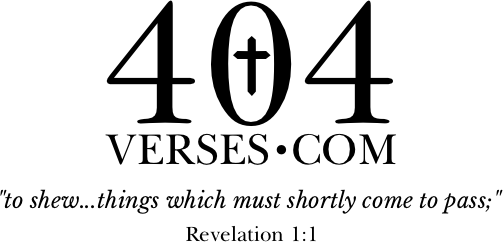Blessed is he that readeth, and they that hear the words of this prophecy, and keep those things which are written therein: for the time is at hand.
Blessed is he that readeth,
“Fortunate” (Gr.) is the person who reads The Revelation. In other words, the one who reads The Revelation realizes advantages not enjoyed by those who neglect its study (Matthew 5:3-12; Luke 11:28; Luke 14:13-15; James 1:12). Think about it! By clear inference, not only is this phrase a compelling indication of the positive significance of The Revelation to the welfare of every professed Christian, but it also undeniably speaks to its comprehensibility‒for one is never “blessed”, or advantaged, by confusion or obscurity. With these things being true, we must then admit that to avoid its study under any rationale guarantees losses, or a definite lack of advantages, no less consequential in effect than would be the divinely-intended gain imparted by reading and understanding its predictions, comforts, warnings, and solemn admonitions.
Before we proceed to the next phrase of this verse, it must be pointed out that the word “readeth”, here, is not to be understood in its casual sense‒that is, simply comprehending only what is recognized in the face value of The Revelation’s words alone. Rather, it is important to note that the Greek word translated “readeth” includes the idea of understanding what is being read‒which happens only through sincerely searching for the truth (Matthew 13:13-16, 19, 23) while being enlightened by the Holy Spirit (I Corinthians 2:12-14). Certainly, it would be ridiculous to say that one should regard his condition as a favored or “blessed” who merely reads or hears words that he or she cannot understand, or has described to him or her magnificent symbols that have to them no meaning. The word “prophecy” is used in this verse in its stricter sense, denoting the disclosure of future events‒a large portion of the book being of this nature. Face value alone is, here, of no value.
and they that hear the words of this prophecy,
The word “hear”, here, is likely used in a sense that is not uncommon, that of giving attention to; taking heed to‒but likely not at all in the sense of simply hearing someone else reading aloud the words of The Revelation. For, in such a case, one can only hope to hear the words written, but not at all understand there meaning. For instance, several times in The Revelation, Jesus admonishes us to “hear” what the Holy Spirit is saying unto “the churches.” Revelation 2:7, 11, 17 and 3:6, 13, 22. In each case, one would not suggest that the fundamental meaning of the word “hear” is that of literally hearing the voice of divinity reading aloud the words which precede and follow such an admonition. Rather, the Savior’s solemn invitation refers to that of ascertaining and understanding the meaning of what one is reading (Matthew 13:13-15; Matthew 15:10). As stated before, to this end, sincerity and the Holy Spirit’s enlightenment are crucial (I Corinthians 2:12-14).
and keep those things which are written therein:
A sincere desire to know the truth naturally leads to a willingness to obey what is being revealed (Psalm 119:97-104; Matthew 12:33-35; Luke 8:21; Luke 11:28; Matthew 7:17-20; Acts 17:10-12; James 1:21-25). The Greek for “keep” refers to a habitual observance (Colossians 1:9-11; Ephesians 4:1-4; Revelation 22:7-9). In other words, the blessings, or advantages, which result from having in possession the revealed truth of God is not merely in reading and then comprehending its meaning‒but rather, it results from the fact that the truth is sincerely and properly regarded and exerts a transforming influence over our lives. Compare Psalm 19:11; “And in keeping of them there is great reward.”
for the time is at hand.
The word “time” refers to a particular moment of time—the “time” for the fulfillment of the “things which must shortly come to pass” (See explanation on Revelation 1:1). The great motivating force behind “reading,” “hearing,” and “keeping” the teachings of The Revelation is that the second coming of Jesus is “at hand!” The reward promised to the sincere student of The Revelation is also found here, for by being aware of the signs ushering in Jesus’ return, one is able to prepare for this glorious event (I Thessalonians 5:1-9). This preparation includes an obedience born of love and a transformed life (Luke 6:46-49; II Peter 3:10-17; I John 5:3; John 14:15; II Corinthians 11:2; Revelation 7:13, 14; Revelation 19:7-9).
Now, let’s expand the above explanation for the sake of clarity. The Greek word used here for “at hand” ‒ἐγγύς engus‒substantially conveys the same meaning as the word “shortly” in Revelation 1:1. Essentially, it would apply to any event whose beginning was soon to occur, though the end might be in the relative distant future‒as when a series of events begin relatively soon and stretch to a time centuries later. It is likely that what the Apostle John desired to impress upon the Church was the great importance of anticipating that the events of which he writes were entirely, or in part, soon to happen. And again, as has been pointed out in the previous phrases of this chapter, this clearly infers that The Revelation can be understood‒or else how could it possibly convey useful enough instruction to be used as a prophetic roadmap for the waiting Church in anticipation of the consummation of all history in the second coming of Jesus Christ?

